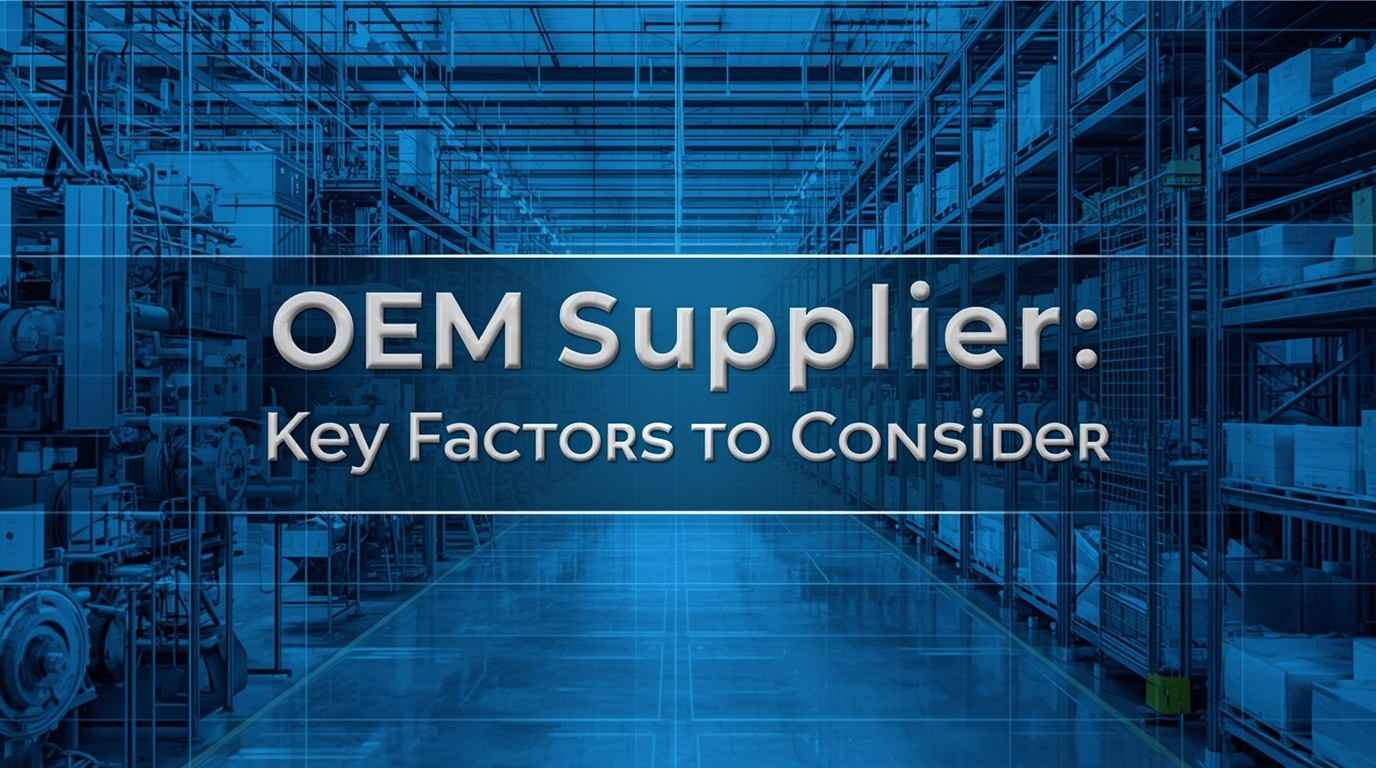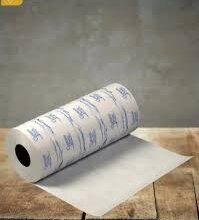Choosing the Right OEM Supplier: Key Factors to Consider

When businesses look for a partner to manufacture parts, products, or components, selecting the right Original Equipment Manufacturer (OEM) supplier becomes one of the most important decisions. The right supplier can help you deliver quality products on time, maintain consistency, and build a strong reputation in the market. On the other hand, a poor choice can lead to delays, cost overruns, and long-term setbacks.
In this blog, let’s break down the key factors you should consider before choosing an OEM supplier.
1. Quality Standards
The first thing you should evaluate is the supplier’s quality standards. High-quality manufacturing ensures that your end product meets customer expectations and industry requirements. Check if the supplier follows recognized certifications such as ISO standards, which guarantee consistency and compliance.
You can also request product samples or conduct a quality audit to get a sense of their process. Reliable OEM suppliers don’t just meet the minimum standards—they aim to exceed them.
2. Industry Experience
Experience in your specific industry makes a huge difference. A supplier who understands your sector will already know the challenges, regulations, and customer demands. For example, an OEM working in the automotive sector must comply with strict safety standards, while one in consumer electronics needs expertise in precision and durability.
Suppliers with proven experience are less likely to make costly mistakes. They can also share insights and suggestions that improve your product design or efficiency.
3. Production Capacity
Your supplier should have the ability to meet your current and future needs. If your demand grows suddenly, can they scale up production without compromising quality? This is an important question to ask.
Evaluate their facilities, machinery, and workforce. A supplier who can handle small orders but struggles with large volumes may not be the right fit if your business plans to expand. Always choose a partner who can grow with you.
4. Technology and Innovation
Manufacturing is not just about machines and labor anymore. The right OEM supplier invests in technology to stay ahead. From automation and robotics to advanced testing systems, these tools can improve efficiency, reduce errors, and lower costs.
A supplier with a focus on innovation is more likely to adapt to market changes and help your products remain competitive. Ask about the technologies they use and whether they are open to adopting new methods that benefit your business.
5. Supply Chain Reliability
Even if a supplier has excellent facilities, it won’t matter if they can’t source materials reliably. A strong supply chain ensures that raw materials are always available, reducing the risk of delays.
Check whether the supplier has relationships with trusted vendors. It’s also good to know if they have backup suppliers in case of disruptions. A transparent supply chain is a sign of a dependable partner.
6. Cost and Value
Cost always matters, but the cheapest option is not always the best. A supplier offering very low prices may be cutting corners on quality or lacking in after-sales support.
Instead of focusing only on cost, think about value. Does the supplier provide consistent quality, on-time delivery, and responsive communication? A slightly higher price can be worthwhile if it ensures long-term savings and fewer risks.
7. Communication and Support
Strong communication builds trust. You need a supplier who responds quickly, provides clear updates, and addresses concerns without delays. Miscommunication in manufacturing can lead to errors, wasted resources, and unhappy customers.
Before making your decision, pay attention to how the supplier communicates during the initial discussions. Are they transparent? Do they listen carefully to your requirements? A good OEM partner treats communication as a priority, not an afterthought.
8. Compliance and Certifications
Different industries have their own rules and regulations. Your supplier should comply with all legal requirements, environmental standards, and labor laws. This ensures your business won’t face penalties or damage to its reputation.
Certifications are another good indicator of trust. For example, ISO 9001 for quality management or ISO 14001 for environmental management show that the supplier follows global best practices.
9. Financial Stability
A financially strong supplier is more reliable in the long run. If a company struggles with finances, it may cut corners, delay projects, or even close operations. This could directly impact your business.
Look for suppliers with a stable track record. You don’t necessarily need all their financial details, but a quick check on their history and growth can give you confidence.
10. Cultural Fit and Long-Term Partnership
Beyond technical skills, cultural alignment matters. You want to work with a supplier whose values and work style match yours. If your company values transparency, collaboration, and ethical practices, your supplier should too.
Think of the relationship as a partnership rather than just a transaction. When both sides share mutual respect and long-term vision, the collaboration becomes smoother and more productive.
11. Flexibility and Customization
Every business has unique needs. Some OEM suppliers only offer standard solutions, while others are open to customization. If your product requires adjustments, modifications, or unique features, make sure your supplier has the flexibility to handle them.
A partner who is adaptable can help you launch products that stand out in the market.
12. References and Reputation
Finally, check the supplier’s reputation in the market. Ask for references or case studies from their existing clients. A trustworthy supplier will be happy to share this information.
Online reviews, industry forums, and word-of-mouth feedback can also give you insights. A supplier with a strong track record is more likely to deliver consistently.
Conclusion
Choosing the right OEM supplier is not a quick decision. It requires careful evaluation of quality, experience, capacity, technology, communication, and trust. A good partner is not just a manufacturer—they are an extension of your business.
By focusing on these key factors, you can reduce risks, build stronger products, and create lasting partnerships.
The right supplier doesn’t just help you today—they help you grow in the future.




